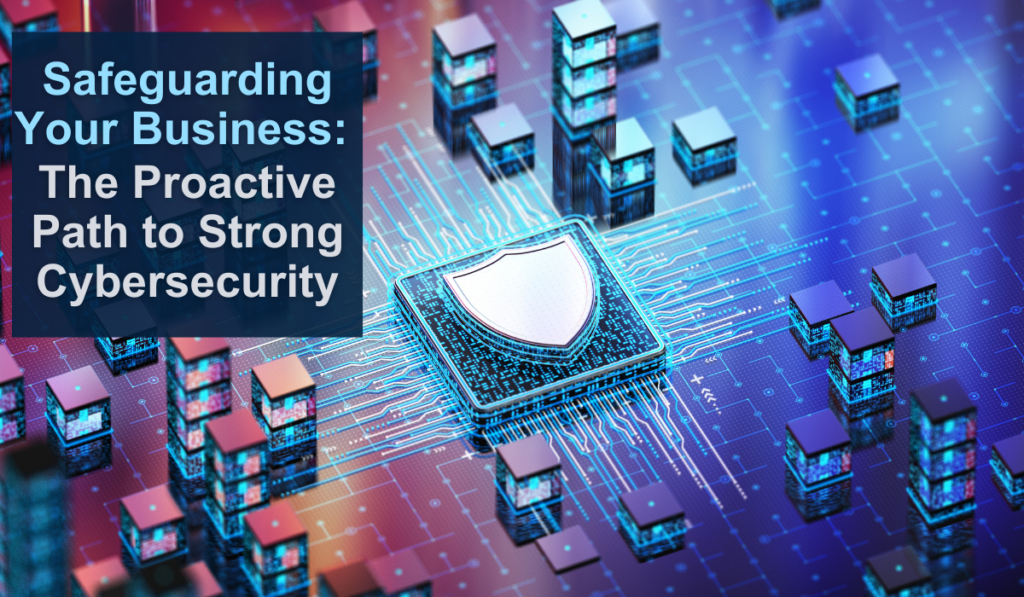When it comes to your cybersecurity, a proactive approach is far better than waiting for a breach to occur and reacting to that breach. Taking a proactive approach to cybersecurity can save your company time and money, as well as protecting your company’s reputation in the long run.
What Reactive Measures actually cost
Relying on a reactive approach to cybersecurity may appear to be a cost-reduction strategy at first glance, but the reality is quite different. Recovery from a cyberattack is not only costly in terms of lost revenue, but also in terms of the time and effort needed to rebuild your business. From ransom payments and data recovery, to regulatory penalties and legal expenses, the costs can spiral out of control quickly.
In addition, the negative impact on your brand reputation could have a lasting impact on customer loyalty and trust. Customers and partners may be hesitant to work with you, resulting in a decrease in revenue and opportunities for growth.
The Benefits of Proactive Cybersecurity
A proactive cybersecurity program is an investment that helps protect against cyber threats before they cause harm. Here are some reasons why a proactive approach should be your top priority:
- Preventing cyberattacks is more cost-effective
It is almost always cheaper to prevent a cyberattack than to deal with the consequences. Identifying vulnerabilities and implementing strong security measures can significantly reduce the likelihood of a breach, saving you money on data recovery, litigation, and fines down the road.
- Protecting customer trust
A breach can damage customer trust, resulting in lost business. Showing your commitment to cybersecurity by taking proactive measures demonstrates your dedication to protecting sensitive customer data, which can increase customer loyalty and bring in new customers who prioritize security.
- Compliance
In many industries, data protection laws and regulations are in place. Not only does proactive cybersecurity help you meet these compliance requirements, but it also helps you avoid penalties in the event of a data breach. Failing to comply with these regulations can result in hefty fines. For example, in the healthcare industry, HIPAA regulations are in place to protect patients from data breaches.
- Competitive Advantage
If you can demonstrate your cybersecurity readiness, you will gain a competitive advantage. Your clients and partners will be more likely to work with organizations that prioritize cybersecurity, giving you a competitive edge in the marketplace.
Components of a Proactive Cybersecurity Program
Develop a proactive cybersecurity program by reviewing and implementing the following key elements:
- Employee Training
Invest in cybersecurity training to ensure your employees are well-informed and prepared to respond to cyberattacks.
- Regular Risk Assessments
Identify potential weaknesses in systems and processes by conducting regular risk assessments to identify and address them before cybercriminals can take advantage of them.
- Advanced Threat Detection
Utilize advanced tools and technologies to detect and respond to cyberattacks in real-time.
- Strong Policies and Procedures
Develop and enforce strong policies and procedures to protect against cyberattacks, such as password management and access controls.
- Data Backup and Recovery Plans
Regularly back up and test your critical data to ensure you can quickly restore operations in case of a cyberattack.
- Stay Up-to-date
Be aware of the latest trends, threats and best practices related to cybersecurity. As cybercriminals evolve their tactics, your defense strategies must evolve with them.
Protect Your Future with Proactive Cybersecurity
Investing in a strong cybersecurity program can help protect your business assets, reputation, and future growth in today’s ever-changing threat environment. Being proactive isn’t just a financial decision; it is an investment in your company’s future success and long-term sustainability. Don’t sit idly by – strengthen your defenses today!

